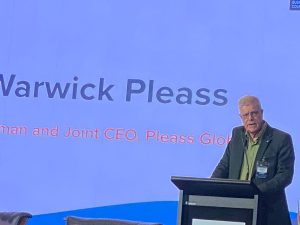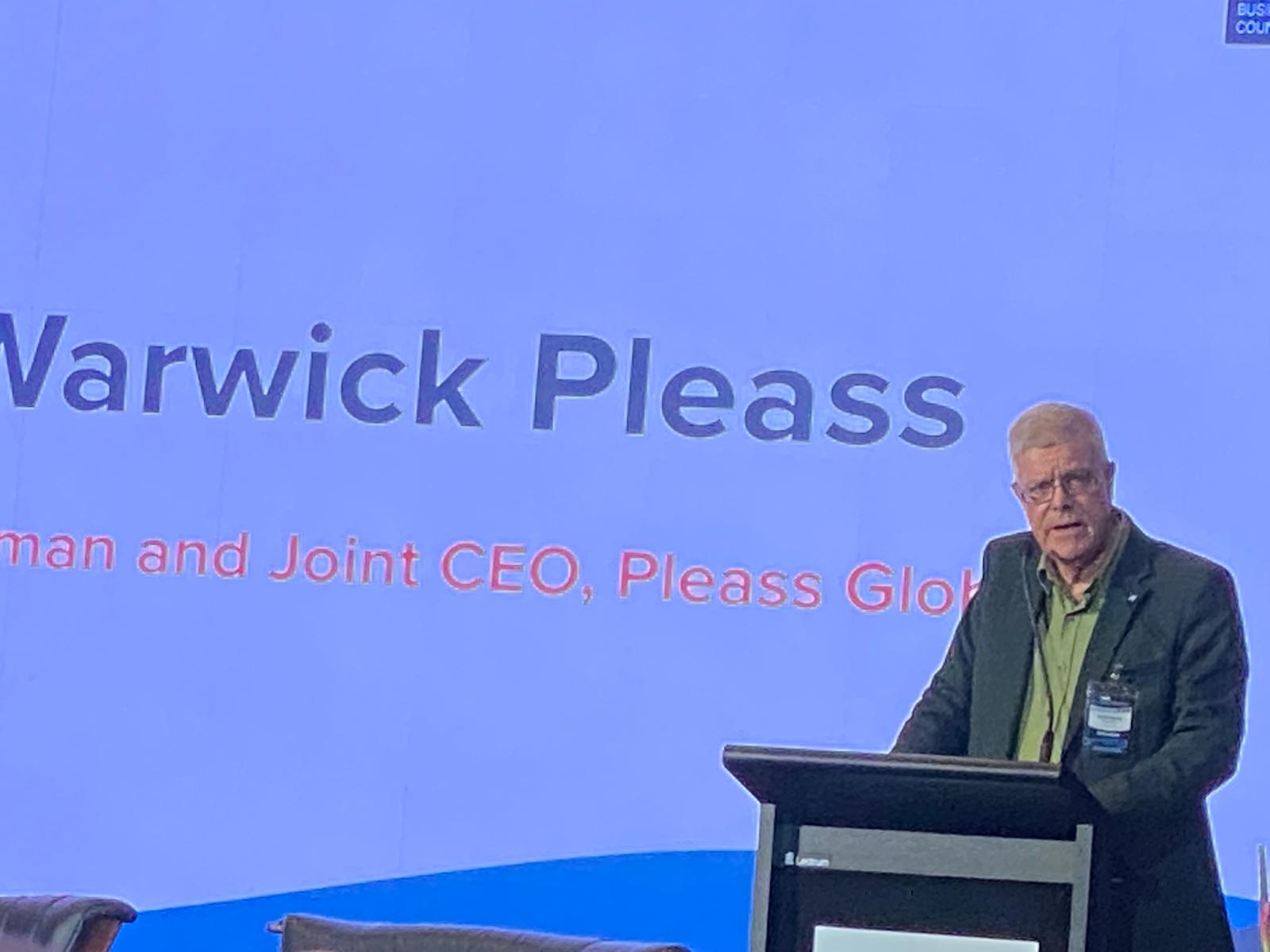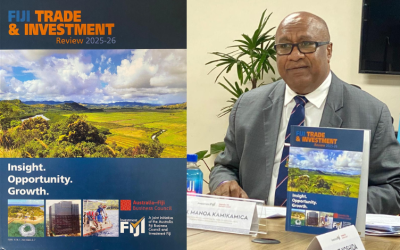Fiji’s manufacturing sector faces several critical challenges that are holding back its potential for growth and global competitiveness. These challenges include high shipping costs, workforce shortages, and an unreliable electricity supply, all of which hinder the ability of businesses to operate efficiently and scale up production. However, with strategic investments and targeted efforts, these barriers can be overcome, opening the door to significant opportunities for the country.

Warwick Pleass speaking at the Forum
Warwick Pleass, Chairman and Joint CEO of Pleass Global, a leading Fijian company involved in water bottling, food and beverage packaging, eco-tourism, and property development, highlighted these issues during his presentation at the 28th Fiji-Australia/Australia-Fiji Business Forum. As a successful industry leader with extensive experience in navigating the Fijian market, Pleass offered insights into the most pressing challenges facing manufacturers in the country. Among these is the high cost and limited service of shipping, which severely limits trade and export opportunities. The geographic isolation of Fiji makes logistics expensive, and businesses often struggle to maintain efficient supply chains.
Pleass shone a light on the shortage of skilled labour, which is exacerbated by low educational outcomes. This shortage restricts manufacturers’ ability to adopt advanced technologies and scale their operations. He also pointed to the anti-competitive environment in Fiji’s manufacturing sector, which discourages innovation and stifles market growth. Moreover, unreliable electricity supply and communication infrastructure create further operational difficulties for manufacturers.
Despite these challenges, Pleass also outlined a range of potential solutions that could revitalize the sector. He stressed the importance of building strong relationships and partnerships, both domestically and internationally, to drive investment in production capabilities. Improving energy production and distribution would also be key to unlocking the sector’s full potential. Reliable electricity, Pleass argued, is a foundational requirement for manufacturers to expand and become more competitive.
Pleass also advocated for revolutionising the education system to address the labour shortage. By investing in schools and colleges, Fiji can develop a workforce with the skills needed to support a thriving manufacturing industry. In addition, Pleass sees opportunity in resource recovery, value-added processing, and upcycling, which could not only contribute to economic growth but also promote sustainable practices.
Finally, he highlighted the need to enhance shipping services and port infrastructure, which would reduce logistics costs and improve connectivity for Fiji’s exports. With these improvements, the country can better position itself in the global trade landscape and take advantage of new opportunities.
While Fiji’s manufacturing sector faces significant obstacles, industry leaders like Warwick Pleass see a path forward through strategic investment and partnerships. By addressing key challenges such as logistics, labour shortages, and energy infrastructure, Fiji has the potential to transform its manufacturing landscape and foster long-term economic growth.



